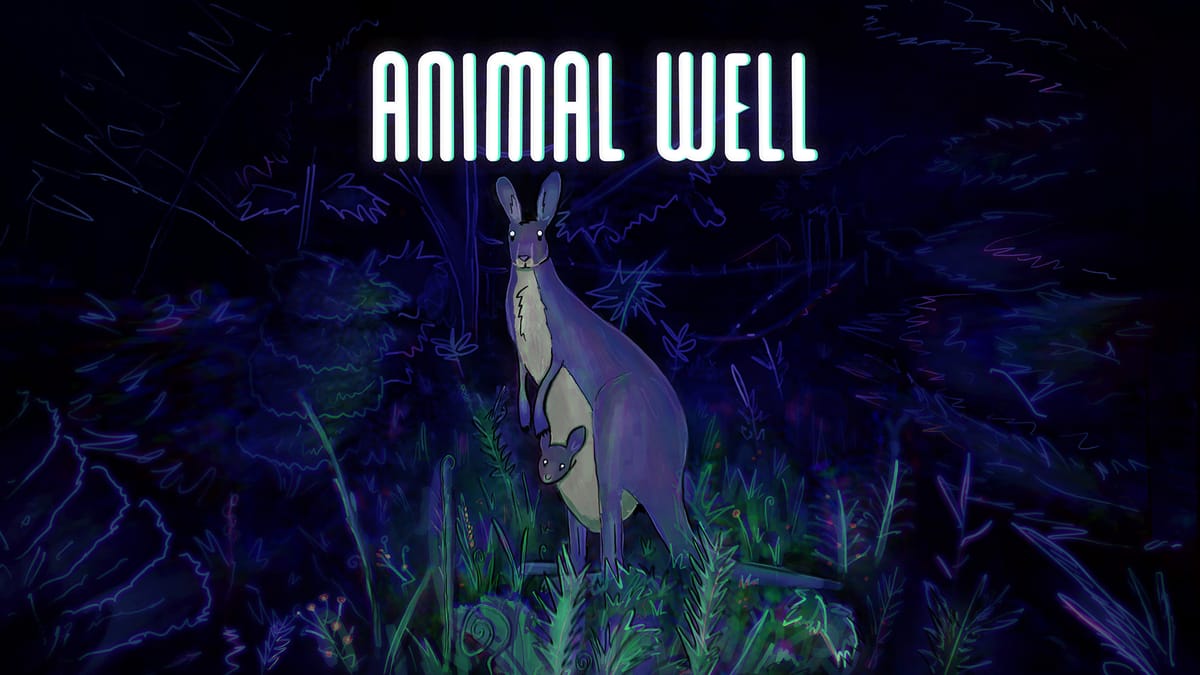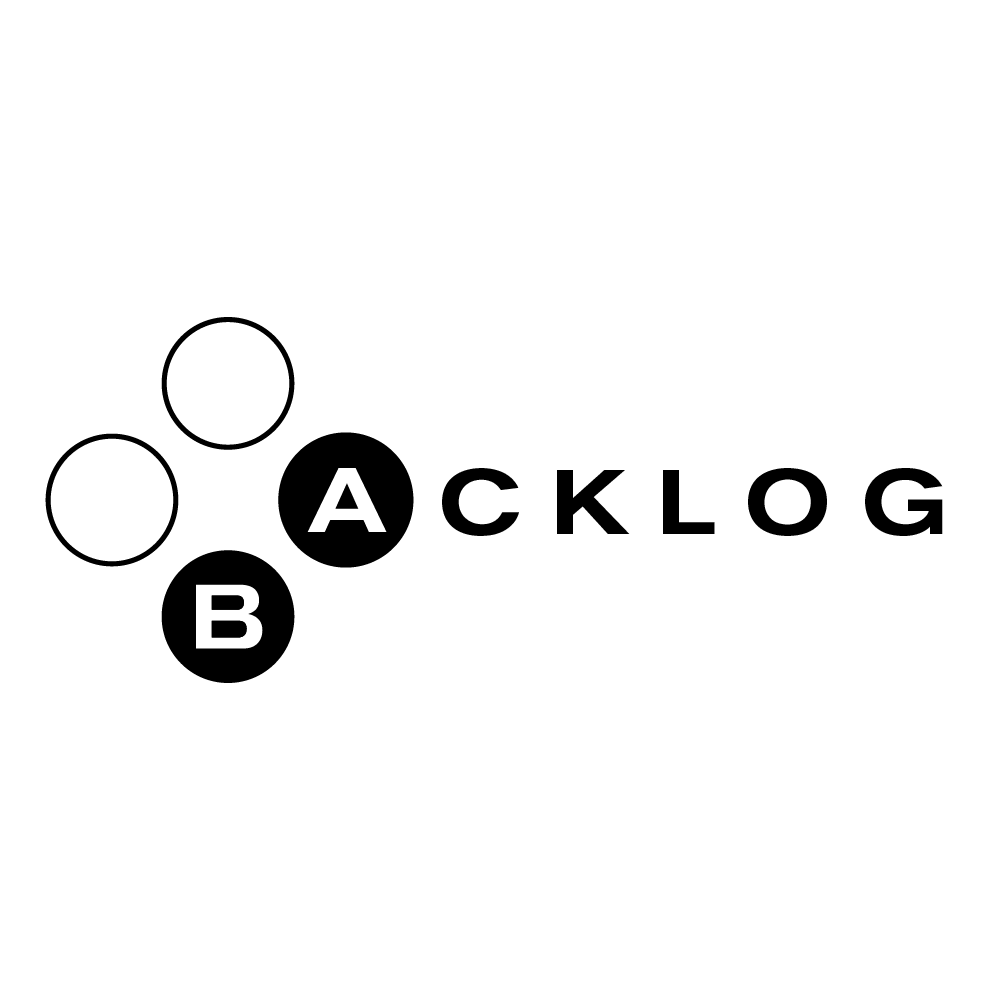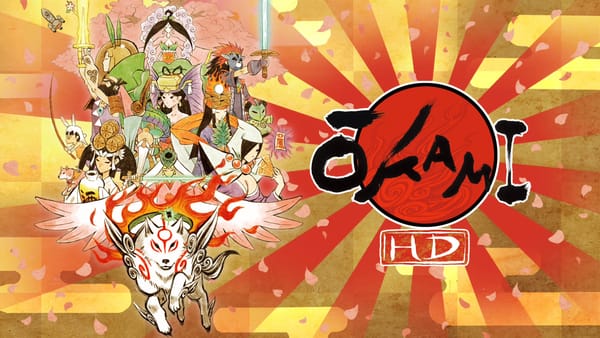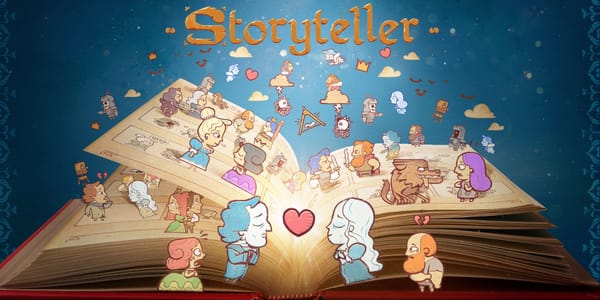Animal Well and reading poems for hidden meaning
I prefer interpretation to deciphering

When I was in grade school, they taught us to look for “hidden meaning” within the poems we were assigned. Somewhere within the poem as it seemed was the poem as it actually was: the true poem and its true meaning. Or so the lesson went. If we only spent enough time with the thing, we could glean what we were meant to glean with patience, diligence, and a keen eye.
If I were feeling generous, I’d say the goal of this exercise was to encourage us to look at a poem a second time after reading it. Kids being kids, we loved when poems were assigned, not because we intrinsically loved poetry, but because they were short and quickly consumed. Being assigned a poem meant less homework than being assigned a story. In tasking us with finding a poem’s “hidden meaning,” however, it was not enough to simply read the poem. One must reread it, often many times over, in order to achieve this aim. By passing through the poem a second time, or a third, or a fourth, we were taught to seek out what the author, purportedly, truly meant to tell us. What we’d gleaned on a first read was insufficient: it was only after we’d found the hidden meaning that we understood the poem at all.
So too with Animal Well, a game that doesn’t really start until you’ve seen the credits.
I think Animal Well is a brilliantly designed game for a certain type of person. From that perspective, I don’t disagree with the praise that’s been heaped upon it. Animal Well is perhaps the quintessential title in what I personally like to think of as the Holy shit genre: these kinds of metapuzzlers that task you with deciphering what the game you’re playing even is. Their design purposefully obscures things in order to make the player feel confused, then crazy, then brilliant, as you utter Holy shit once you discover a secret that reveals a new layer to the experience. And Animal Well is full of those Holy shit moments, if you’re the type of player for whom that kind of thing works. Problem is, I’m just not the audience.
I’m on the record as not necessarily digging games like Fez or Tunic. To that end, it’s not a surprise that Animal Well also doesn’t work for me. I don’t find it pleasurable to spend my time trying to unravel a game’s obfuscated mysteries. I am not a pixel peeper nor a notebook keeper. To be abundantly clear, this is not a virtue of mine. I almost wish I did find that kind of metapuzzling enjoyable, because, on paper, you’d think I’d love this genre. I love a good puzzle game, and I love a good bit of interpretation (see: all of Backlog), so why don’t I love Animal Well?
I think it’s because Animal Well is a poem that comes with a hidden meaning assignment within a hidden meaning assignment within a hidden meaning assignment.
[Spoilers for Animal Well follow.]
Animal Well is a game of rereading. Its first layer, or its first read, is a largely enjoyable take on the Metroidvania genre. It wisely replaces combat with puzzling, and less wisely replaces escape sequences with, well, a worse escape sequence. The mood of the whole thing, achieved by its hauntingly lo-fi visuals and off-kilter color palette, is strong, and carries you through the first six to eight hours of the game, wherein you collect four flames from across the map in order to proceed to a final area. Once you’ve completed all this, you have finished what Animal Well fans refer to as the “first layer” of the game, but which I am going to refer to as “the poem.”
Upon completing the poem of Animal Well, I felt like I was missing something. It was pleasant enough, but I was not feeling as enthralled as the critics whose opinions I respect seemed to feel. I felt… fine! My first read was completed, and my initial impression was that the poem of Animal Well was good but not great. But as was made clear by the game’s “conclusion,” the end was not really the end.
Animal Well’s second layer is eggs. Eggs on eggs on eggs, strewn through the entire map, hidden in devious ways that require a great deal of creativity to uncover. I’d collected something like 40 of them before beating the game—excuse me, reading the poem—out of a total 64. It quickly became clear that Animal Well’s second layer, or what I’m calling the first reread, was going to be about finding all the eggs. Every last one.
Fine. I’ve played collectathons before. I’ve scoured map screens to find unexplored nooks. I’ve sought out secrets. I kept going. I found more eggs. I found new items. I found new areas. But doing so required me to continuously reread the poem, which is to say, to move slowly and methodically through the entire map, again and again.
There is fast travel in Animal Well, but only limitedly, and only to one location. (Please do not write about the bubble glitch in the comments. I will disown you.) Otherwise, you are stuck hoofing it through the same locales you already scoured in your first reading of the poem. Then, a few more eggs in hand, you are (again) stuck hoofing it through the same locales you already scoured (again) in your second reading of the poem, and then the third, and then the fourth.
I found this process to be entirely too tedious, and if you didn’t, then I imagine you made it to the third layer of Animal Well, which is even wackier in what it demands of the player’s attention. For those of you who figured out the mystery of the bunnies and the import of their ears, truly, you are an exceptional breed of reader. I mean this sincerely. Your ability to take an obtuse text and find deeper meaning within its surface-level simplicity is a level of close reading that inspires my admiration. I can only imagine the ecstasy you must’ve felt being rewarded for this level of attention-paying. I can only imagine it, because I refused to do the same.
See, I don’t believe poems have hidden meanings. I believe poems are subject to interpretation, like any art object. I’m of the personal opinion that teaching children at such a young age that art can be, essentially, “unlocked” or “solved” is a grave misstep on the road to teaching someone to love reading. I get why it’s done—try explaining the complexities of close reading to a grade-schooler—but, still, there’s such a rancid lie at its core that I reject the lesson altogether. Poems do not have hidden meanings. Poems have meaning. Poems have meanings. Poems offer themselves up to differing interpretations.
My issue with Animal Well stems out of this weirdly fervent literary opinion. Animal Well actually does have a hidden meaning. The joy of it, which I could not personally access, is in unlocking those secrets, in solving a puzzle you didn’t realize you were meant to solve on your first read. To be clear, there is no obvious answer to the larger trappings of the game (Why these animals? Why this setting? Why so haunted?), and to that degree, Animal Well, like any other work of art, is open to the kind of interpretation that I am arguing for. But the central task of Animal Well, and with it, the main feeling it means to import on the player, is so thoroughly tied up in the same ethos as this grade school assignment that I couldn’t get past layer two. I didn’t collect all the eggs, and I don’t intend to.
This is not a declaration that Animal Well is bad art or badly designed. In fact, I think it’s quite good art to even elicit this kind of reaction from me. I care this much about its design because it was so intentionally created. It’s a thorough, thoughtful work, and my reaction to it does not take away from that fact. It’s just that, as I’ve already said, I’m not its audience. I don’t like being given hidden meaning assignments. But if you do—boy, do I have a well for you.





